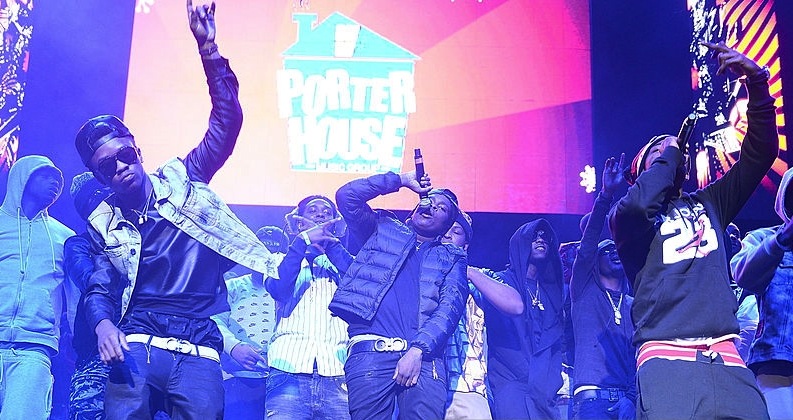
Come this fall Ashland will be getting a new taste of music contrary to the usual indie scene associated with the city. On October first Southern Oregon University will be hosting a rap concert featuring artists Travis Porter, JR Castro, and Paul Wall to be held at the SOU practice field. Following a tumultuous election Colin Davis announced the concert as one of his first actions as Associate Students of Southern Oregon University President.
“This is one of the reasons I wanted to be your student body president,” Davis said in a tweet he posted on Aug. 11. “To bring big events to SOU that we have never had before.” The tweet, which has over 55 retweets and 100 likes, credits thanks to Student Life directors, university legal counsel and administration, ASSOU Vice President Tyler Takeshita, as well as INB Music Company. With a vision of making the university “a great environment for students” and connecting students with on-campus clubs and organizations during the upcoming year.

Davis hopes that the concert and the surrounding club fair will “bring the SOU community together and start the year off with some fun” as well as be an opportunity “toward promoting larger events and building a stronger community campus wide,” he says.
The announcement has evoked mixed feelings in members of the SOU community. SOU junior Rebekah Krum questions the motivations behind the event, saying “I was told it’s to bring people together and enhance community but there’s really no way to communicate or make long-term friends at a concert.” She wishes more students’ input would have been considered in choosing which artists would be performing, and suggests that a poll of all students would have been an effective way of ensuring the performers reflect the majority of the student body’s preferences.
“I’m excited that we’re following in the direction of bigger schools,” said criminology major Marina Jorgensen who retweeted the announcement. “I am a little worried about how it’s going to turn out because it is the first one; But it’s a learning process for everybody.”
Davis had to gain university clearance before the concert contract was signed, and there are plenty of event logistics still being worked out. One clear fact has emerged, however: Davis received the money for the concert contract through an “emergency request” of Student Fee dollars.
To fund the event, he approached the Student Fee Advisory Council comprised of the ASSOU President, the Speaker of the Senate, the Chief Justice, the President of the Residence Hall Association, and the Chair of the Black and Red Crew of SOU. Davis currently sits as the committee chair. This committee is charged with allocating money from the Student Fee Reserve (money that has been left over from the fees collected in previous years). According to ASSOU bylaws the Advisory Council has the power to speak for the student government and other student organizations on campus when it comes to emergency or otherwise unexpected student body related events when the three branches of ASSOU are not in session or are unable to convene.
According to minutes obtained from a meeting on July 19th, the Advisory Council approached Davis’ concert pitch as an “emergency fund request.” Providing funds to emergency requests has been troublesome for student government in past years. Due to poor past budgeting, last year’s ASSOU administration was able to meet emergency proposals for the first time in years. One such proposal came from the women’s lacrosse team, which suffered equipment losses due to a car break-in while they were traveling. What constitutes an “emergency request” is not explicitly defined in the ASSOU Bylaws. However, requests for portions of the Student Fee Reserve Fund must follow certain criteria. It must be a one-time, non-recurring expense, it must be of an emergency nature, and have potential to impact a large group of students according to ASSOU bylaws. Beyond that, those requesting emergency funds are required to have fundraised between 10 and 20 percent of the total proposal amount. As the chair of the Advisory Council, Davis abstained from an otherwise unanimous vote to meet the fund request of $20,750 for the down payment on the artists’ contracts.
“If this concert is turned into viable campus outreach, and gets students involved in the campus community in the long run, then it probably is in the interest of the student body at-large,” said Brian Sorenson last year’s Director of Finance for ASSOU. “If that doesn’t happen, then this just undermines us, and prevents us from doing more important work,” he said questioning the fiscal responsibility of the emergency request funding. It is yet to be seen if Davis’ request has the same impact on the campus as Sorenson discussed.



